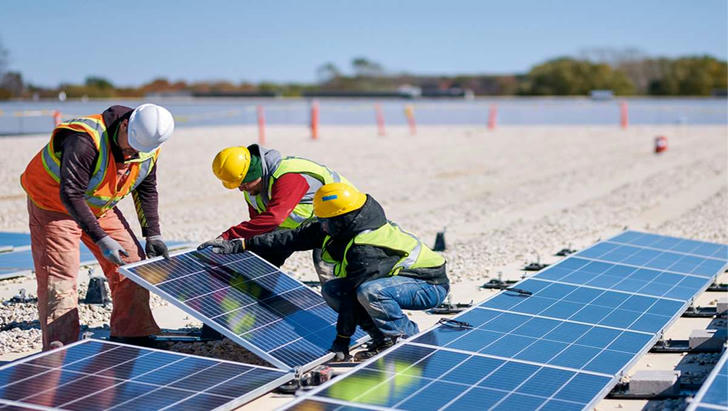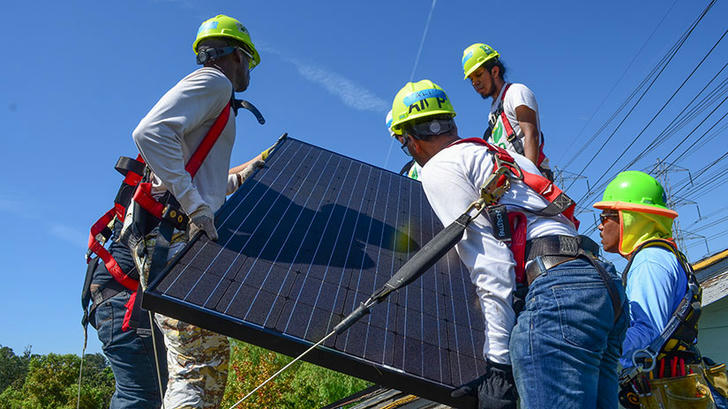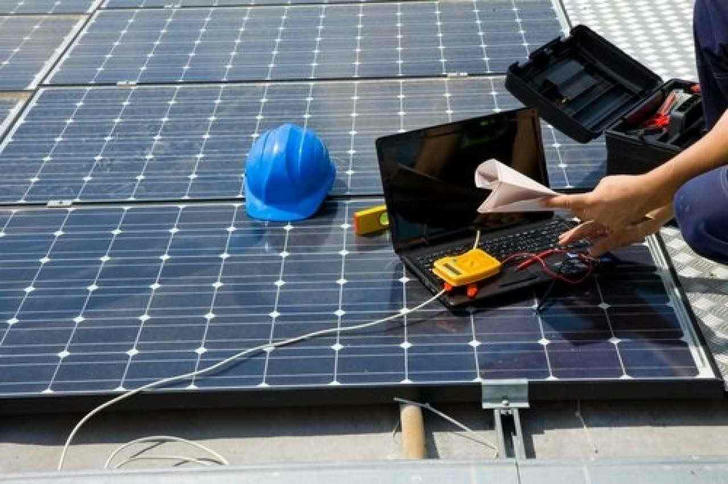How much do solar panel installers typically make? How do salaries vary by region?
Introduction
Solar panel installers are key players in the shift towards renewable energy. Their work involves installing, maintaining, and repairing solar panels on homes, businesses, and large solar farms. As the world moves towards sustainable energy solutions, the demand for solar panel installers continues to rise. But how much do they typically earn, and what factors influence their pay?
This article explores the average salaries of solar panel installers in different countries, factors that affect their earnings, and real-life examples of how installers can maximize their income.

Ⅰ. Average Solar Panel Installer Salary
Here’s a summary of solar panel installer salaries in different countries:
United States: The average salary for a solar panel installer is around $48,000 per year. More experienced installers can earn up to $60,000, and those working in high-demand areas can make even more.
Canada: In Canada, solar panel installers earn about CAD $55,000 per year on average, with higher wages in provinces like Alberta and British Columbia.
United Kingdom: Installers in the UK earn between £24,000 and £30,000 per year, with more experienced professionals earning up to £40,000.
Australia: Solar panel installers in Australia earn around AUD $70,000 annually. In high-demand areas like Sydney or Melbourne, wages can go up to AUD $90,000.
Germany: Installers in Germany make about €36,000 per year, with higher wages in cities like Berlin or Munich.
New Zealand: Solar panel installers earn approximately NZD $58,000 annually, with higher pay in cities like Auckland.
China: Salaries for solar panel installers range from ¥50,000 to ¥100,000 annually, depending on the location and experience.
Ⅱ. Factors That Affect Solar Panel Installer Earnings
Several factors impact how much solar panel installers can earn:
Experience: Installers with more experience tend to earn higher salaries. A seasoned installer can command a higher wage than someone just starting out.
Location: Those working in urban areas or regions with higher demand for solar energy projects often earn more than installers in rural areas.
Certifications: Installers with certifications in solar technology or electrical work can earn significantly more, as these qualifications often lead to higher-paying jobs .
Industry Demand: Solar panel installers in regions where renewable energy is growing quickly, like California or parts of Europe, tend to earn more due to high demand.
Type of Projects: Installers working on larger commercial or industrial projects typically earn more than those installing panels on residential homes.
Full-Time vs. Contract Work: Full-time installers usually receive stable salaries and benefits, while contract workers may have the potential to earn more by taking on multiple projects but face less job security.

Ⅲ. Additional Benefits and Compensation
Solar panel installers often receive benefits in addition to their basic salary:
Overtime Pay: Many installers work extra hours, especially on large projects, which can significantly increase their earnings.
Health Insurance: In many countries, solar panel installers receive health benefits, including dental and vision coverage.
Paid Time Off: Installers often receive paid vacation, sick leave, and holidays.
Bonuses: Some employers offer bonuses for completing projects ahead of schedule or for meeting performance goals.
Training and Certifications: Employers sometimes pay for additional training and certifications, which can further boost an installer’s earning potential.
Ⅳ. Case Examples of Solar Panel Installers
Case 1: John, a Solar Panel Installer in the U.S.
John, 35, works as a solar panel installer in Phoenix, Arizona. He started with a basic salary of $40,000, but after gaining more experience and obtaining a certification in electrical work, he now earns $55,000 per year. On top of his base salary, John often works overtime during busy seasons, adding an extra $5,000 to his annual income. In total, John makes around $60,000 per year.
Case 2: Sarah, a Solar Panel Installer in Canada
Sarah, 28, works as a solar panel installer in Vancouver, British Columbia. She started her career earning CAD $45,000 annually, but after specializing in commercial solar projects, she now earns CAD $65,000 per year. Sarah’s employer also covers her health insurance, which adds another CAD $3,000 in benefits. With bonuses for completing large projects, Sarah’s total compensation reaches about CAD $68,000 each year.
Case 3: Liam, a Solar Panel Installer in the UK
Liam, 32, is a solar panel installer based in Manchester, UK. He began his career with a salary of £22,000 but has since advanced to earning £35,000 annually by gaining more experience and specializing in large-scale installations. Liam also receives paid vacation, adding to his job satisfaction. By working on high-profile projects, he sometimes earns bonuses, bringing his total annual income to around £38,000.
Ⅴ. How to Increase Earnings as a Solar Panel Installer
There are several ways solar panel installers can increase their earnings:
Gain Experience: The more experience you have, the higher your salary will likely be. Working in the field for several years can lead to promotions or higher-paying jobs.
Get Certified: Earning certifications in solar energy, electrical work, or specialized installation techniques can help you command higher pay.
Work on Larger Projects: Installers working on commercial or industrial projects often earn more than those focused on residential jobs. Seek opportunities to work on bigger installations.
Take Overtime: Solar panel installers can significantly increase their earnings by working extra hours, especially during peak seasons when demand for installation is high.
Move to High-Demand Areas: Working in regions where solar energy is growing rapidly, like California, Germany, or Australia, can lead to higher wages due to increased demand.
Start Your Own Business: Becoming an independent solar panel installer allows you to set your own rates and take on more clients, potentially increasing your income.

Conclusion
Solar panel installers play a vital role in the growing renewable energy sector. While their salaries vary based on experience, location, and the types of projects they work on, installers can significantly increase their income through specialization, certifications, and working in high-demand areas.
As seen in the examples of John, Sarah, and Liam, solar panel installers have the opportunity to advance their careers and earn more by gaining experience, working overtime, and taking on larger projects. With the renewable energy industry continuing to expand, solar panel installation offers not only a stable income but also great potential for career growth and financial rewards.
For those considering a career as a solar panel installer or looking to improve their earnings, the key lies in gaining experience, pursuing specialized training, and working in high-demand regions. As the world continues to shift towards sustainable energy, the opportunities for solar panel installers will only continue to grow.
